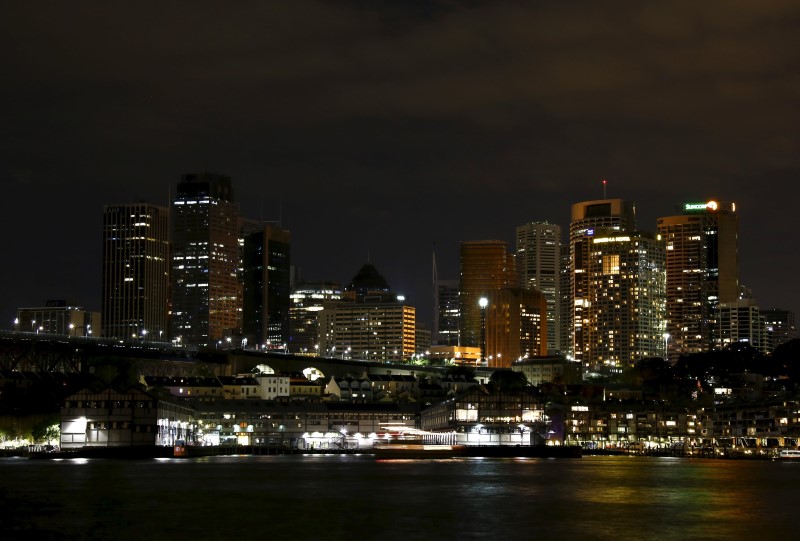* Q2 GDP rises 0.5 pct q/q vs forecasts of +0.6 pct
* Annual growth picks up to 3.3 pct, fastest since 2012
* Soft inflation, domestic demand leave door open to rate cut
By Wayne Cole
SYDNEY, Sept 7 (Reuters) - Australia's resource-rich economy expanded at the fastest annual pace in four years last quarter, clinching a remarkable run of 25 years without recession as surging export volumes offset weakness in mining investment.
The local dollar held firm at $0.7662 after news gross domestic product (GDP) rose 3.3 percent in the year to June, up from around 2.9 percent the previous quarter.
The value of all goods and services rose 0.5 percent compared to the first quarter, when output climbed by an unusually strong 1.0 percent.
Growth in the quarter was bolstered by a pre-election spurt in government spending combined with modest gains in household spending and home building. That helped offset another steep decline in mining investment, which has been dragging on the economy for more than three years now.
For the year as a whole, international trade was the biggest prop to growth as the hundreds of billions spent on mining projects yielded a bounty of resource exports.
Trade accounted for no less than 2.2 percentage points of growth in the year to June.
That strength in external demand belied a much more mixed performance at home, where domestic final demand grew by just 1.2 percent in the year.
The report also suggested economy was not yet running hot enough to revive inflation, with the main GDP price indicator up only 0.3 percent for the year.
The need for even "stronger growth" was cited by the Reserve Bank of Australia (RBA) when it cut interest rates to record lows of 1.5 percent in August, and why it might yet ease again.
Financial markets now imply around a 44 percent chance 0#YIB; of a further rate cut by Christmas, compared to around 44 percent ahead of the GDP data.
"The 25th consecutive year of GDP growth in Australia, puts us into a rarefied club," said Michael Workman, a senior economist at CBA.
"But we still expect an interest rate cut - the inflation measures are still very low in the national accounts."
